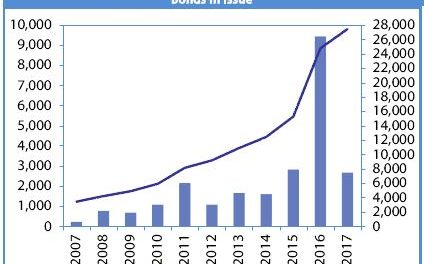
Do we have the inclination to start a medical revolution?
In May this year, we shall celebrate 50 years since the first official attempt to create structures across the continent to unite Africa. The Organisation of African Unity started in 1963 at a time when many African countries were still ruled by colonial powers so it is understandable that political issues featured prominently in the first 30 years of the OAU, but over the past quarter of a century, in the wake of the wave of political change that swept across Africa, it became clear that the future will be determined by economic consideration. Since the formation of the African Union, human development and consequently, economic diversification and growth, have become the force de majeur.
Namibia joined at a relatively late stage. As a young nation, finding our own spot on the very large canvass that is Africa, has been done mostly with both eyes on internal issues and very little attention on what is happening in the region, let alone the continent.
But I believe taking note of the continent and the vast opportunities it offers, provides the sign posts for our future development. Take for instance the set of goals as defined in the fourth National Development Plan. As with NDP 2 and 3, industrialisation remains a key objective and is seen as the driver of growth deep into the future. This emulates, to a large extent, the successes of the so-called Asian Tigers.
I support the notion that some kind of industrialisation is required to put us on that niveau where we have full employment, produce goods for export, and function as a meaningful player in the region’s economies. Yet, I think we miss opportunities by only looking at the conventional type of factory that produces either components for other manufacturers, or produces cheap imitations of products that are already in abundance in just about every economy worldwide. In short, I sense we are emulating a model that has proven successful for many other countries, and by doing so, we are overlooking lucrative industries that may offer more potential for future growth.
There is an industry that is not on the radar of a typical third world country, simply because it is so novel, expensive, and refined. I am referring to biochemistry and nanotechnology, and all the aspects that fall under this broader label.
If I consider which companies are making investors in the developed world excited, I notice that so-called biotechs feature prominently and very high on the list. Seeing that the entire African continent lacks a biotech industry of any significance, it sends out a specific signal that there may be huge opportunities for us in pursuing the establishment of and participation in this industry. For many years the concept of technological leapfrogging was punted as holding much promise for economic development. The flavour of the month thinking then was that since Africa has such modest investments in technology, we will not be burdened by copying existing older (obsolete) technologies but will jump ahead by adopting only the most recent, innovative technologies. I have not seen this happen.
Biotech may offer us an actual leapfrog opportunity. Worldwide the industry is only in its infancy. Although highly developed and dependent on very exact science, new discoveries are made on a daily basis. The biotech base in Namibia is zero meaning that whatever we allow in, if we set ourselves a policy of enticing biotech ability and skills into our market, will constitute only the latest and the most advanced. In the biotech industry it does not make sense to invest in the old. The technological advances are simply too rapid to bother with technology that is older than five years.
But we will need a serious change of heart in terms of labour legislation. The leading biotech companies which I follow will not necessarily see us as the most promising investment destination given our propensity to set foolish rules before progress and development. This indicates that likely candidates for biotech investment will probably come from countries like Brazil or Russia with a few more candidates in Eastern Europe. I do not foresee Chinese or Indian companies opening satellite facilities in Namibia as they persue this industry for exactly the same reasons we may want to – employment.
To open a gateway for future biotech investment, it may also be prudent for the government to consider sponsoring at least part of such investments, perhaps for an equity stake.
After all, the whole continent with its one billion potential users is already there and we are part of it. Now we must only figure out how to produce advanced medicines for this huge consumer pool.










































